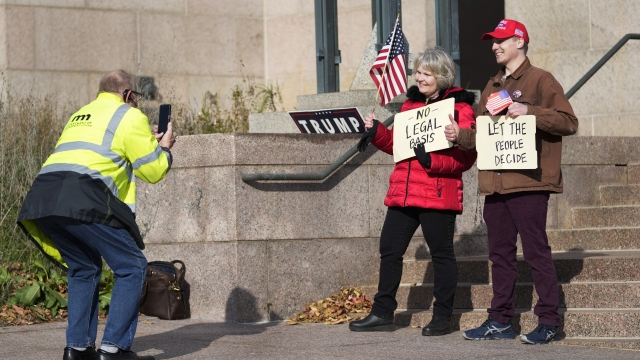As the Minnesota Supreme Court hears arguments about whether former President Donald Trump can remain on the 2024 primary ballot, there is pressure for judges to come to a swift conclusion — but there's much complicated legal debate on whether or not there are grounds to exclude Trump's name from next year's election. With ballots in some states due next month, a lot hinges on what's happening in these courts.
"At best, there's mixed authority out there. And I guess my question then is, doesn't that suggest we use caution and some judicial restraint and maintain the status quo, if you will?" said Minnesota Supreme Court Chief Justice Natalie Hudson.
The statute at the core of the argument is Section 3 of the 14th Amendment, which states no person shall hold any office having engaged in insurrection or rebellion. At the time, it was meant to prevent Confederates from seeking office, but now, it's being cited to prevent a former president from appearing on the ballot — something that has never happened before. Ian Farrell, a law professor at the University of Denver, says it's why so many people in law academia are paying attention to this case as well.
"The general idea is that whatever a court says becomes the law and if it's said by a superior court, that binds lower courts. What that means is that if the U.S. Supreme Court says Trump is barred by section 3 of the 14th Amendment, every lower court has to follow suit," said Farrell.
Farrell says he fully expects this case to make its way to the U.S. Supreme Court, and time is of the essence. In some states like New Hampshire, which holds the country's first primary, ballots must be certified by next month. So officials are closely following the developments. Farrell also expects the decision to impact how people on both sides of the aisle vote next year.
"The immediate consequence would be that Donald Trump would not be on the ballot for the Republican primary. There would be questions then about whether he could be a write-in candidate, but that would send a massive signal. It would potentially affect the way people vote," said Farrell.
SEE MORE: Donald Trump Jr. testifies for 2nd day in father's fraud trial
Trending stories at Scrippsnews.com




